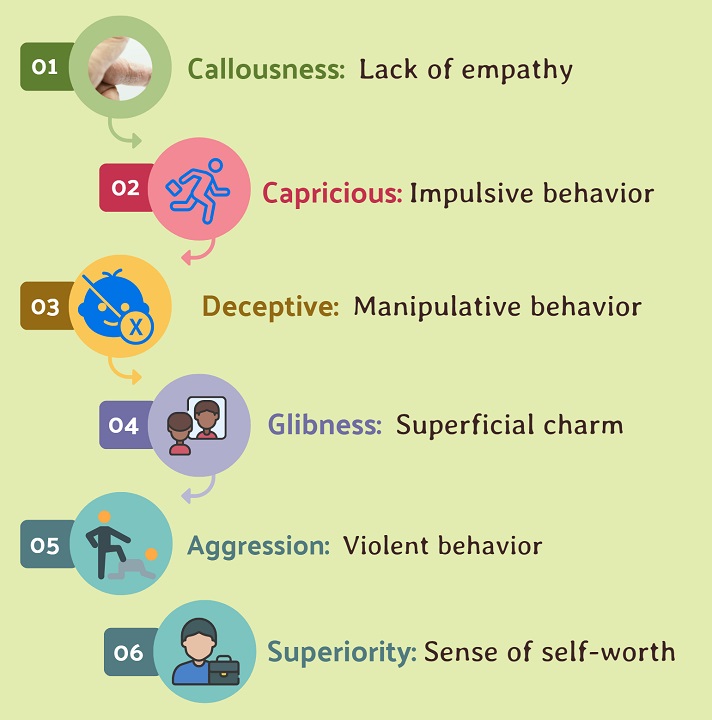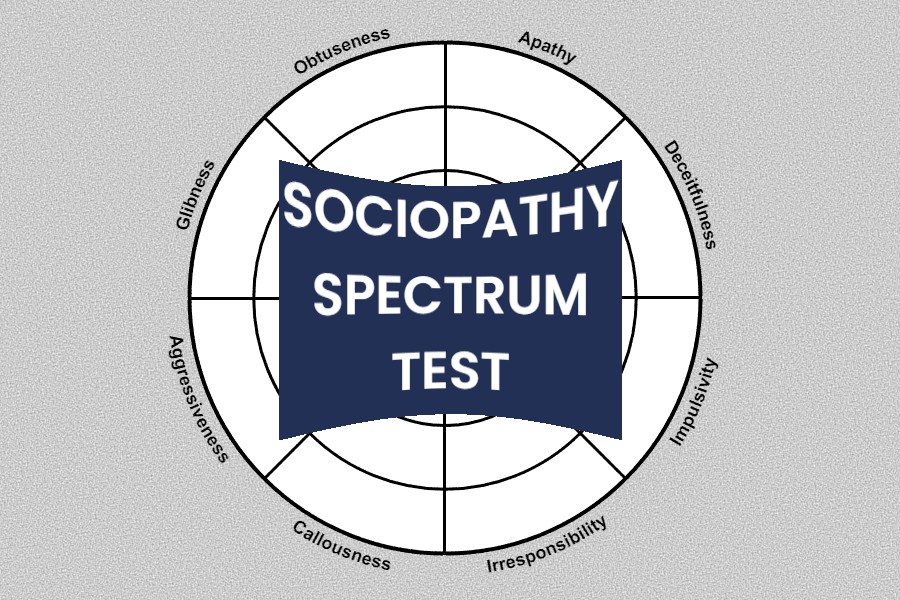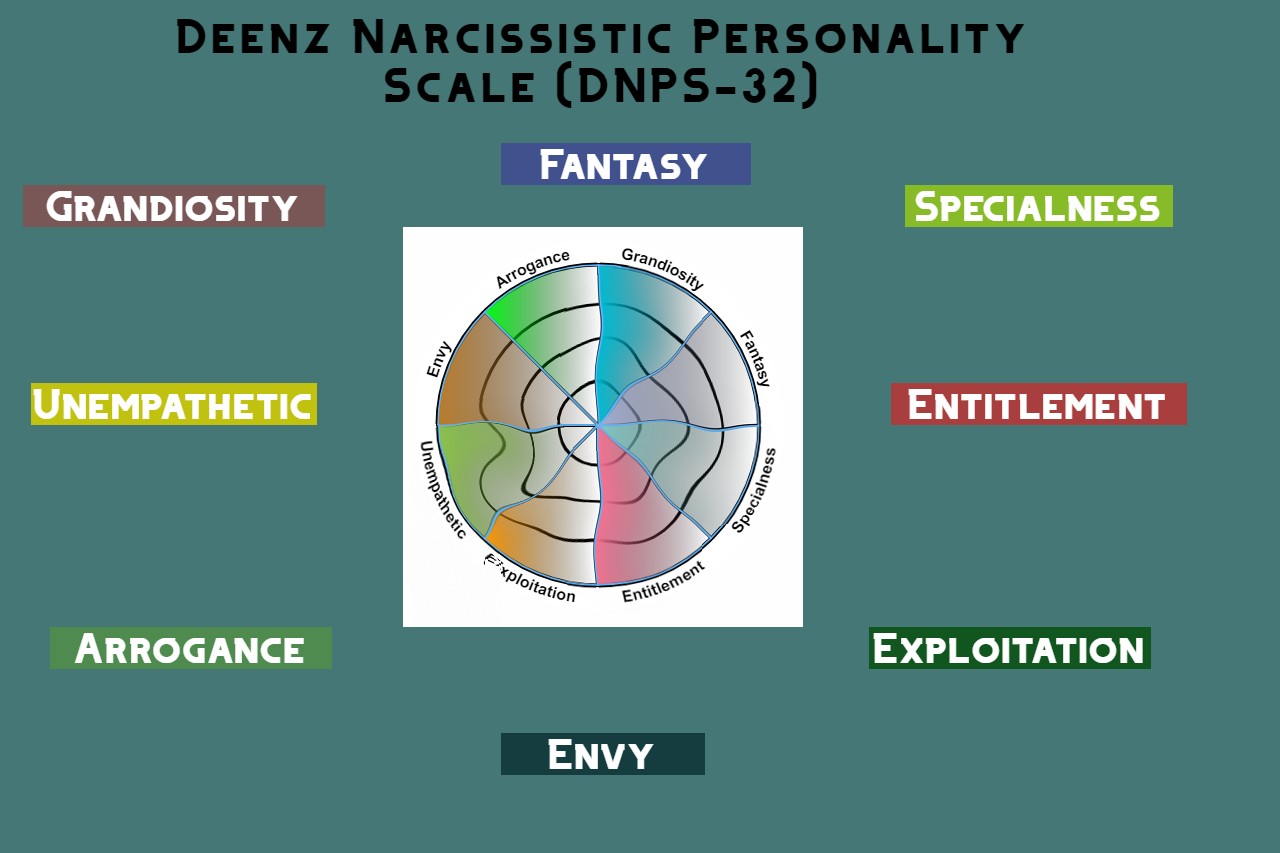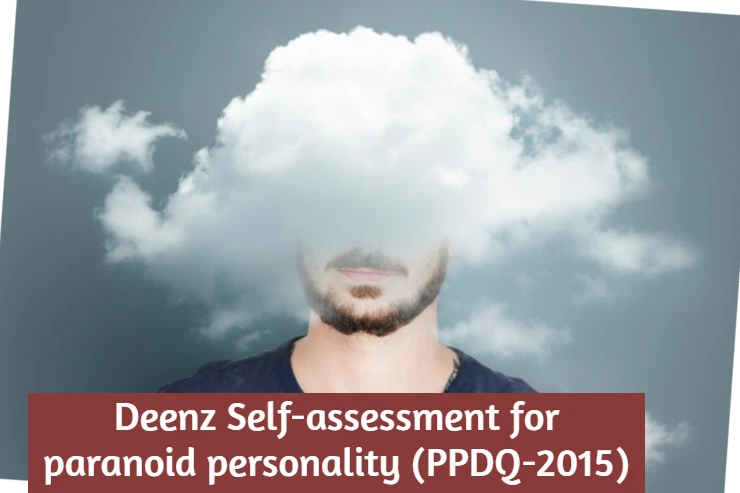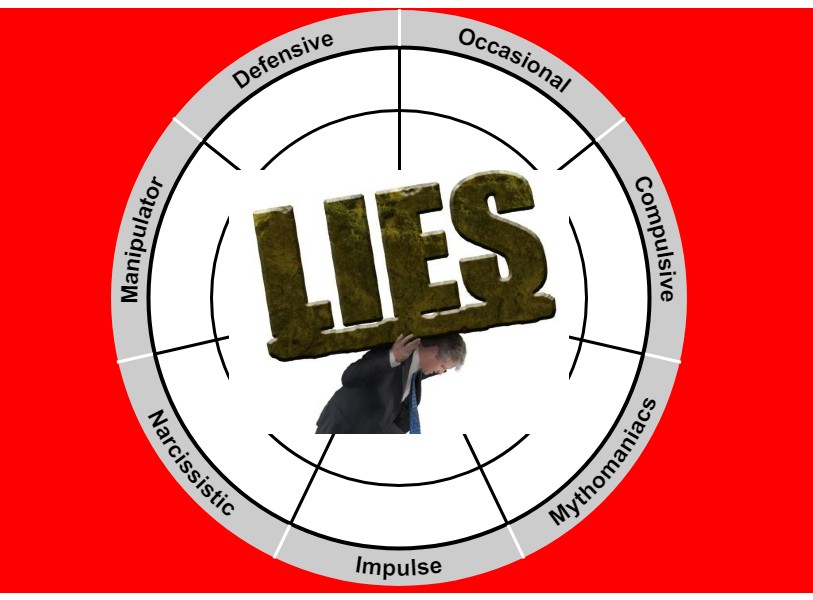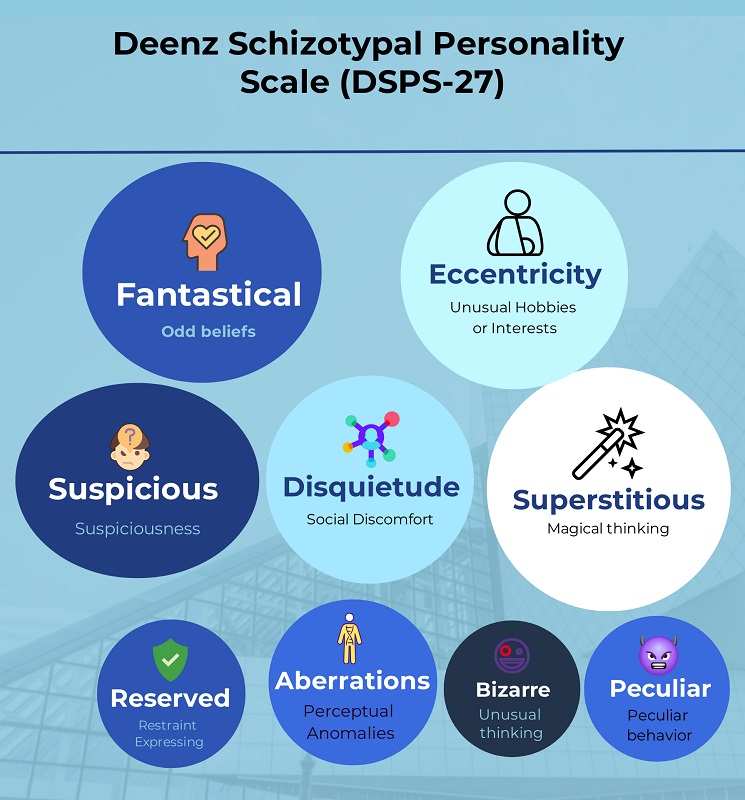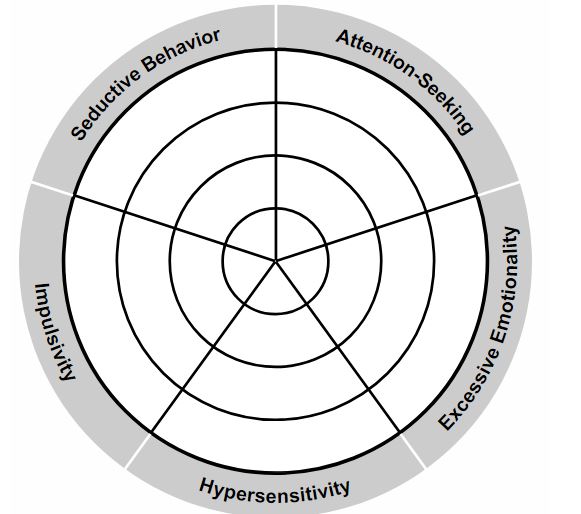Basic information | |
|---|---|
| Statements: | 24 |
| Duration: | 3–6 minutes |
| Type: | Self-assessment |
| Publishing year: | 2021 |
| Seminal paper: | Deenz Psychopathy Spectrum Scale (DPSS-24) [ref] Deenz Psychopathy Spectrum Scale (DPSS-24): A Measure of Subclinical Psychopathic Traits. |
Psychopath test is the computerized version of Deenz Psychopathy Spectrum Scale (DPSS-24) which is a valid and reliable measure of subclinical traits associated with psychopathy. This self-assessment tool is intended for educational purposes only and should not be used for a self-diagnosis of any mental health condition. Participation in this tool is completely anonymous and we do not store your results or personal information for research purposes.
The term psychopathy has been derived from the Greek words “psyche” which means mind and “pathos” meaning suffering. In the past, psychopathy was described as the suffering of the mind. Over time the understanding of psychopathy has changed and in the modern psychology, it is considered as a personality disorder characterized by exhibiting antisocial and harmful behaviors.
In contemporary psychology and psychiatry, the term ‘psychopathy’ is often used interchangeably with ‘antisocial personality disorder’ (ASPD). [1] Ogloff, R. P. (2006). Psychopathy/Antisocial Personality Disorder Conundrum. Researchers suggest that psychopathy and antisocial personality do not share the same traits and it is not necessary that every psychopath may have antisocial personality disorder.[2] Abdalla-Filho, …. (2020). Does every psychopath have an antisocial personality disorder? Brazilian Journal of Psychiatry… Psychologists and researchers emphasize understanding psychopathy by exploring various aspects including its characteristics and origins.
The purpose of Deenz Psychopathy Spectrum Scale (DPSS-24) is to measure the subclinical psychopathy traits, including lack of empathy, impulsivity, manipulative behaviors, etc. Subclinical traits of psychology do not go beyond the limitations where they may be considered pathological or indicative of a mental disorder. [3] Falkenbach, ….. “The exploration of subclinical psychopathic subtypes and the relationship with types of aggression.” ….
Facets of Psychopathy
Lack of empathy (callousness)
Individuals who exhibit lack of empathy often have difficulty understanding others’ feelings, emotions, and experiences also known as callousness. If you score highly in this trait and low in other traits, it does not mean you are less empathic than others. Lack of empathy is often associated with antisocial personality, disorder and narcissistic personality disorder. [4] “Deenz Dark Triad Personality Scale: Development, Validation, and Reliability.” (2023). You can also take the empath test which is based on my recent case study about measuring empathy among college students.
Impulsive behavior (Capricious)
If you are acting without thinking about consequences of your actions, you may be referred to as an “impulsive person.” Impulsiveness is the common trait associated with psychopathy, but if you scored high on this trait and low on other traits, then you may should not be concerned. Being capricious does not mean you are suffering from personality disorder. Other personality disorders share the same trait including borderline personality disorder, antisocial personality disorder, and attention-deficit/hyperactivity disorder.
Manipulative behavior (Deceptive)
Being deceptive means the person is using manipulative and tactics to control or influence others in a cunning or deceptive way. If you scored high on this scale and low on other traits, it may be a sign of other personality disorders such as narcissistic personality disorder, borderline personality disorder, or other mental health conditions. In my research conducted on dark triad personality, the manipulative behavior trait of psychopathy has been found the most important trait to be recognized in criminal assessments. [4] “Deenz Dark Triad Personality Scale: Development, Validation, and Reliability.” (2023).
Superficial charm (Glibness)
If you do not have genuine intentions to appear charming, confident, and likable on the surface and you often use this for personal gain and manipulation, then you will be referred to as a “superficial charm person.” If you scored high in this trait but low on other traits, then you might have other conditions such as narcissistic personality disorder.
Aggressive behavior (Aggression)
If you always engage in dangerous or violent behavior because it makes you feel better, then you will be referred to as an aggressive person, but most of the time aggression is considered a hallmark trait of psychopathy. [5] Crawley….. “Implusive-Aggression, Antisocial Behaviour and Subclinical Psychopathy: Preliminary Findings from an Undergraduate Female Sample. Not every person exhibiting aggressive behavior has symptoms of psychopathy, so if you scored high on this dimension, it does not necessarily mean you are a psychopath; you may have anger issues.
Sense of self-worth (self-esteem)
Feeling superior to others may be good, but if you find yourself criticizing and belittling others and perceiving them as inferior, it may be indicative of a psychopathic trait. You may be referred to as an “egoistic” person, but if you scored high on this trait and low on others, then you may have other personality disorders. Feeling a high level of self-worth does not mean you may have any mental health disorders; it may be a normal part of healthy self-esteem and confidence.
Is this psychopath self-assessment accurate?
Deenz psychopathy spectrum scale is a valid instrument for measuring subclinical traits, subclinical traits does not go beyond or meet the thresholds for clinical diagnoses. There are various factors that influence the accuracy of the test. In a scale study conducted on 320 college students, 209 male and 111 female students from various streams and cultures. The scale was found accurate in measuring the traits associated with psychopathy. If you need more information on the case study please consult the full manuscript currently published as preprint. This computerized version is provided as a self-assessment, it should not be used as clinical diagnosis of psychopathy. This self-assessment works by scoring your responses and presenting you with results for each facet.
References
Dar, Deen Mohd, Development and Validation of the Deenz Psychopathy Spectrum Scale (DPSS-24): A Measure of Subclinical Psychopathic Traits (November 14, 2023). http://dx.doi.org/10.2139/ssrn.4749504 ↩
Ogloff, R. P. (2006). Psychopathy/Antisocial Personality Disorder Conundrum. Australian & New Zealand Journal of Psychiatry. https://doi.org/10.1080/j.1440-1614.2006.01834.x ↩
Abdalla-Filho, E., & Völlm, B. (2020). Does every psychopath have an antisocial personality disorder? Brazilian Journal of Psychiatry, 42(3), 241-242. https://doi.org/10.1590/1516-4446-2019-0762 ↩
Falkenbach, Diana, Norman Poythress, and Caysyn Creevy. “The exploration of subclinical psychopathic subtypes and the relationship with types of aggression.” Personality and Individual Differences 44.4 (2008): 821-832. https://doi.org/10.1016/j.paid.2007.10.012 ↩
Deen Mohd Dar. Deenz Dark Triad Personality Scale: Development, Validation, and Reliability, 14 November 2023, PREPRINT (Version 2) available at Research Square [https://doi.org/10.21203/rs.3.rs-3565477/v2] ↩
Crawley, Tess, and Frances Heritage Martin. “Implusive-Aggression, Antisocial Behaviour and Subclinical Psychopathy: Preliminary Findings from an Undergraduate Female Sample.” Psychiatry, Psychol. & L. 13 (2006): 232. https://doi.org/10.1375/pplt.13.2.232 ↩





